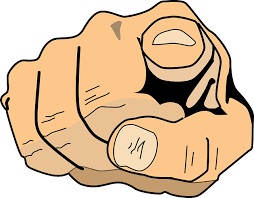Those of us who suffer chronic pain (pain that does not ease after 3 months’ duration) are at increased risk for developing depression.
Depression is misunderstood by many. Depression is not a character flaw or weakness. Depression is real and it can be as debilitating as the chronic pain that preceded it. We have seen with the death of Robin Williams, that depression, when treated improperly, can be life-threatening.
According to the Diagnostic and Statistical Manual of Mental Illness (DSM-V), depression is considered major or often termed clinical when it lasts for at least two weeks and when its symptoms are present daily. The symptoms include the following, five of which should be present in the case of a diagnosis of depression.
- An overall feeling of sadness and hopelessness, irritability and recurrent crying spells
- Significant changes in appetite resulting in either weight loss or weight gain
- Major changes in sleep patterns, typically a desire to sleep all the time or an inability to either fall asleep or stay asleep
- Restlessness or agitation, or complete lack of energy
- Little or no energy or attention for the activities that used to entertain us or bring us joy
- Decreased sex drive
- Feelings or worthlessness, overwhelming guilt feelings
- Inability to concentrate or remember big or little things
- Thoughts of death, suicide, or wishing to be dead, fantasizing about funeral and the aftermath of our death
Dealing with chronic pain requires a team approach. There must be attention paid to the physical nature of your complaints, appropriate therapy must be administered, any medication must be prescribed and adjusted when necessary and constantly monitored for effectiveness as well as side effects. In addition, the mental aspect of pain must be addressed. Patients must avoid saying to themselves, “If I could just get rid of this pain, I’m sure my mental status would improve.” Instead, patients need to be honest with their care providers about the nature of their depression: their moods, the duration of their depression, what their thought processes are, and particularly if they are considering hurting themselves.
Depression, in and of itself, is not always easy to treat. But patients who are already receiving medical care for pain relief are at least part of the medical community and are often open to the treatments that work for depression, combined with chronic pain. These include:
- Medication to alleviate severe depression.
- Avoidance of triggers of chronic pain, which can in turn, increase depression.
- Cognizance of lifestyle choices that contribute to depression, including alcohol and substance abuse, high stress activities, close proximity to difficult or even abusive people
- Increased physical activity when possible, including endorphin-producing cardiovascular activity, stretching, and light walking.
- Meditation and breathing exercises.



